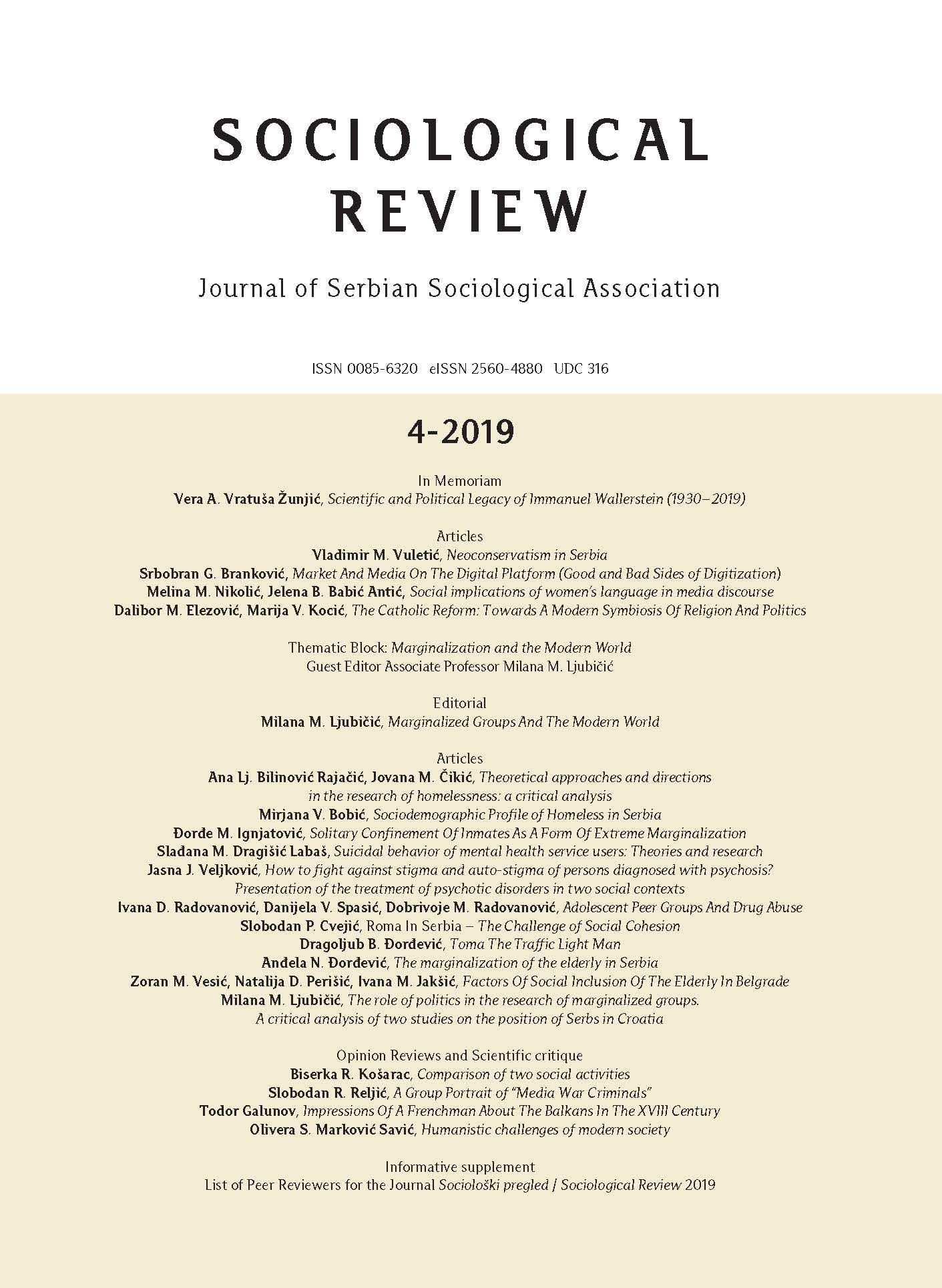The role of politics in the research of marginalized groups. A critical analysis of two studies on the position of Serbs in Croatia
The role of politics in the research of marginalized groups. A critical analysis of two studies on the position of Serbs in Croatia
Author(s): Milana M. LjubičićSubject(s): Social Sciences, Sociology, Social differentiation, Identity of Collectives
Published by: Српско социолошко друштво
Keywords: politics;marginalized groups;research;critical analysis;Serbs in Croatia;Milan Mesić;Dragan Bagić;
Summary/Abstract: The paper deals with the analysis of the connection between politics and the research process in the field of marginalized groups. We approached this question from the perspective of a recently established scientific discipline, the Sociology of Marginalized Groups, which faces numerous methodological challenges, arising from its subject of study. These are highly vulnerable groups and individuals whose study requires tailored research techniques and the same type of approach. Being marginalized, as a rule, people who belong to this population do not have a voice. Therefore, the researcher has the additional responsibility to consider the methodological and ethical pitfalls that he/she may encounter during the research process in the reflexive and self-reflective manner. In particular, consideration must be given to whether, and in what way, political discourse influences the research design, collection, analysis and interpretation of results, since marginalized groups are often the subject of various abuses. To highlight the fact that politics has an important impact on scientific research, as well as having long-term consequences for the population studied, we have critically analyzed two studies by authors Milan Mesić and Dragan Bagić, which address Serb returnees in the Area of Special State Concern (care) in Croatia. Critical analysis confirmed that the political factor undoubtedly influenced the way in which the results were interpreted, the promotion of certain ideas and values (close to political discourse), and finally, to the detriment of the research group. In summary, we can conclude that the contamination of scientific studies with politics, especially those of the applied type, is to the detriment of both researchers and the population that is the focus of research.
Journal: Социолошки преглед
- Issue Year: 53/2019
- Issue No: 4
- Page Range: 1709-1741
- Page Count: 33
- Language: English, Serbian

